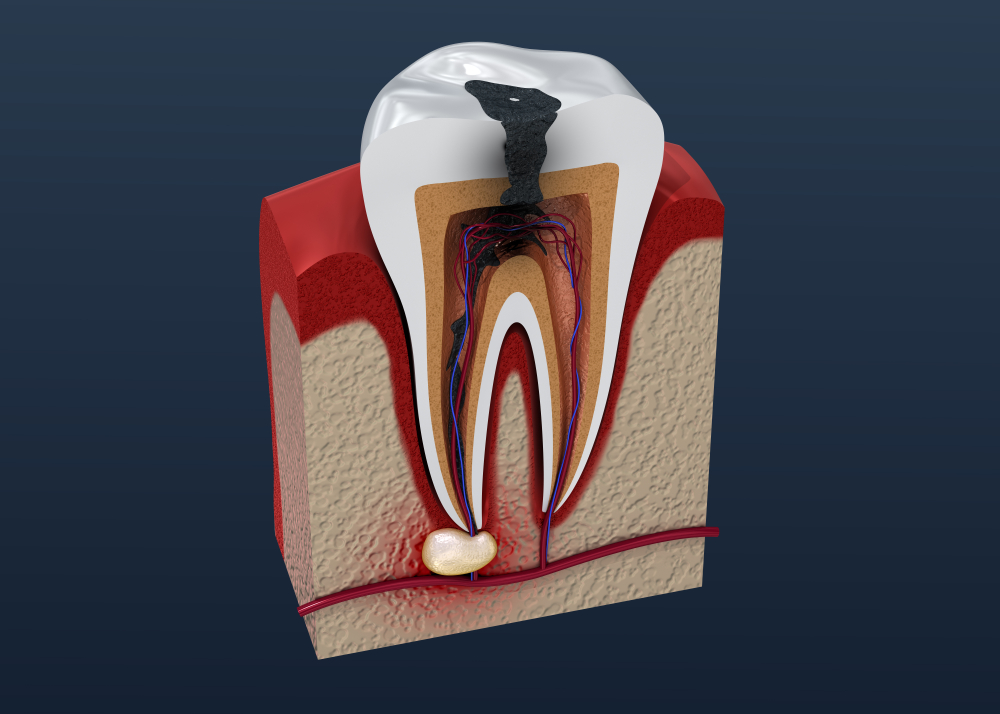An abscessed tooth is a dental problem that occurs when a bacterial infection invades the soft tissue and bone surrounding the tooth. It is a painful condition that requires immediate medical attention from a professional dentist to prevent further complications. The symptoms of an abscessed tooth can range from mild discomfort to severe pain, swelling, and fever. In this article, we will discuss the causes, symptoms, and treatment options for dealing with an abscessed tooth.
Causes of an Abscessed Tooth
The most common cause of an abscessed tooth is poor dental hygiene. When you don’t brush or floss regularly, bacteria tend to grow rapidly in your mouth, forming plaque and tartar. These bacteria can eventually infect the gums, leading to gum disease or gingivitis. If left untreated, the infection spreads deeper into the tooth’s root, causing an abscess. Other causes of abscessed tooth include a cracked or broken tooth, trauma to the tooth, or an underlying medical condition like diabetes.
Symptoms of an Abscessed Tooth
The symptoms of an abscessed tooth usually develop gradually, but they can also appear suddenly. These symptoms include intense throbbing tooth pain, sensitivity to hot and cold temperature, headaches, swollen glands in the neck, fever, and difficulty in chewing or swallowing. If you notice any of these symptoms, it is important to contact your dentist for prompt treatment.
Treatment Options for an Abscessed Tooth
Treatment for an abscessed tooth depends on the severity of the infection. The most common treatment option is root canal therapy. During this procedure, your dentist will remove the bacteria and infected pulp from the tooth’s root, then clean and seal it to prevent further infection. If the infection is severe, your dentist may recommend tooth extraction as an alternative treatment option. Other treatments include antibiotics to control the spread of bacteria and painkillers to alleviate pain and discomfort in the affected area.
Prevention of an Abscessed Tooth
The best way to prevent an abscessed tooth is to maintain good dental hygiene practices. Brush your teeth twice a day using fluoride toothpaste and floss daily to remove any food particles and bacteria that can lead to plaque buildup. Avoid sugary and acidic foods that can erode tooth enamel, and visit your dentist regularly for checkups and professional cleanings. If you have a damaged filling, crown, or cracked tooth, see your dentist immediately to avoid an infection.
An abscessed tooth is a serious dental condition that requires professional dental care, so it is important to schedule a dental appointment right away if you suspect you may have an abscessed tooth. Remember, early detection and timely treatment can prevent further complications and help maintain good oral hygiene. Practice good dental hygiene habits to maintain healthy teeth and gums, and don’t forget to visit your dentist regularly for checkups and cleanings. With the right care, you can keep your teeth and smile healthy for a lifetime.
Disclaimer: The content on this blog is intended for general informational purposes only. It is not a substitute for professional medical advice, diagnosis, or treatment. Always consult qualified healthcare providers for personalized advice. Information regarding plastic surgery, dental treatment, hair transplant, and other medical procedures is educational and not a guarantee of results. We do not assume liability for actions taken based on blog content. Medical knowledge evolves; verify information and consult professionals. External links do not imply endorsement. By using this blog, you agree to these terms.





